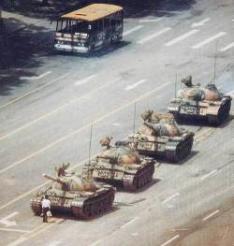The last few weeks have seen some very interesting developments in China. For some years the Chinese authorities have been censoring information available via the web/search engines in their region. So, for example, it is claimed that Google.cn search results are filtered so as not to bring up any results concerning the Tiananmen Square protests of 1989, sites supporting the independence movements of Tibet and Taiwan or the Falun Gong movement, and other information perceived to be harmful to the People's Republic of China (PRC).
According to Wikipedia, "Internet censorship in the People's Republic of China is conducted under a wide variety of laws and administrative regulations. In accordance with these laws, more than 60 internet regulations have been made by the People's Republic of China (PRC) government, and censorship systems are vigorously implemented by provincial branches of state-owned ISPs, business companies, and organisations."
The escalation of the government's effort to neutralise critical online opinion comes after a series of large anti-Japanese, anti-pollution and anti-corruption protests, many of which were organised or publicised using instant messaging services, chat rooms, and text messages. The size of the internet police is estimated at more than 30,000. Critical comments appearing on internet forums, blogs, and major portals such as Sohu and Sina usually are erased within minutes.
The apparatus of the PRC's internet repression is considered more extensive and more advanced than in any other country in the world. The regime not only blocks website content but also monitors the internet access of individuals. Amnesty International notes that China “has the largest recorded number of imprisoned journalists and cyber-dissidents in the world”. The offences of which they are accused include communicating with groups abroad, opposing the persecution of the Falun Gong, signing online petitions, and calling for reform and an end to corruption.
Early this year allegations were made that Chinese authorities were attempting to hack Gmail accounts of dissidents, Gmail being the Google email product.
On January 12, 2010, Google announced its intention to cease censoring results on google.cn in the near term, acknowledging that this might result in the closure of google.cn and even perhaps its China offices. Industry analysts suggest that the reason for this is not purely altruistic; arguing that Google’s business performance in China has been disappointing in recent years and noting that Google has been operating in a censored environment in China for some time.
Regular readers of this column will know that I have been rabbitting on about how technology is driving the transparency agenda – but this is potentially a backwards step. Will authorities ultimately be able to stop the web being used by people to express their opinions?
Governments have tried for centuries to suppress freedom of speech. Public meetings have been banned, phones tapped and people put in prison or executed when they try to speak their mind.
Before technology, sophisticated systems were put in place to get round this issue. People have met in secret, sent each other coded messages, distributed illegal publications and eventually overturned governments that attempted to stop people from speaking their mind.
I am reading a fascinating book about code breaking in the Second World War. This follows the successes and failures of the UK and its allies/enemies in sending and receiving confidential information. Morse code/wireless transmitters and clandestine distribution of printed materials were the main vehicles for distributing this information. Combating nations were powerless to stop information being distributed in this way.
Today the internet has become the mechanism of choice for communicating in secret. Countries like China need to allow their population access to the web/email if they want to operate in the global market. Technology is developing at almost the speed of light to allow people to break firewalls and share information securely. But so are the tools to intercept this and stop it happening. Even with the estimated 30,000 internet police uncensored material will be circulated and confidential information distributed.
Ultimately technology will continue to be used as a vehicle to express freedom of speech and no-one will be able to stop this. However many will be caught when engaging in this activity and a bloody few years are ahead for those brave enough to do so.
The web is here to stay and with many twists and turns it will drive transparency across all of what we do.
Charity finance directors operating in sensitive environments need to think long and hard about how they use the web to support their cause and communicate. The more broadly the sector supports transparency the better the chance we have of allowing a free debate on issues that really matter.









